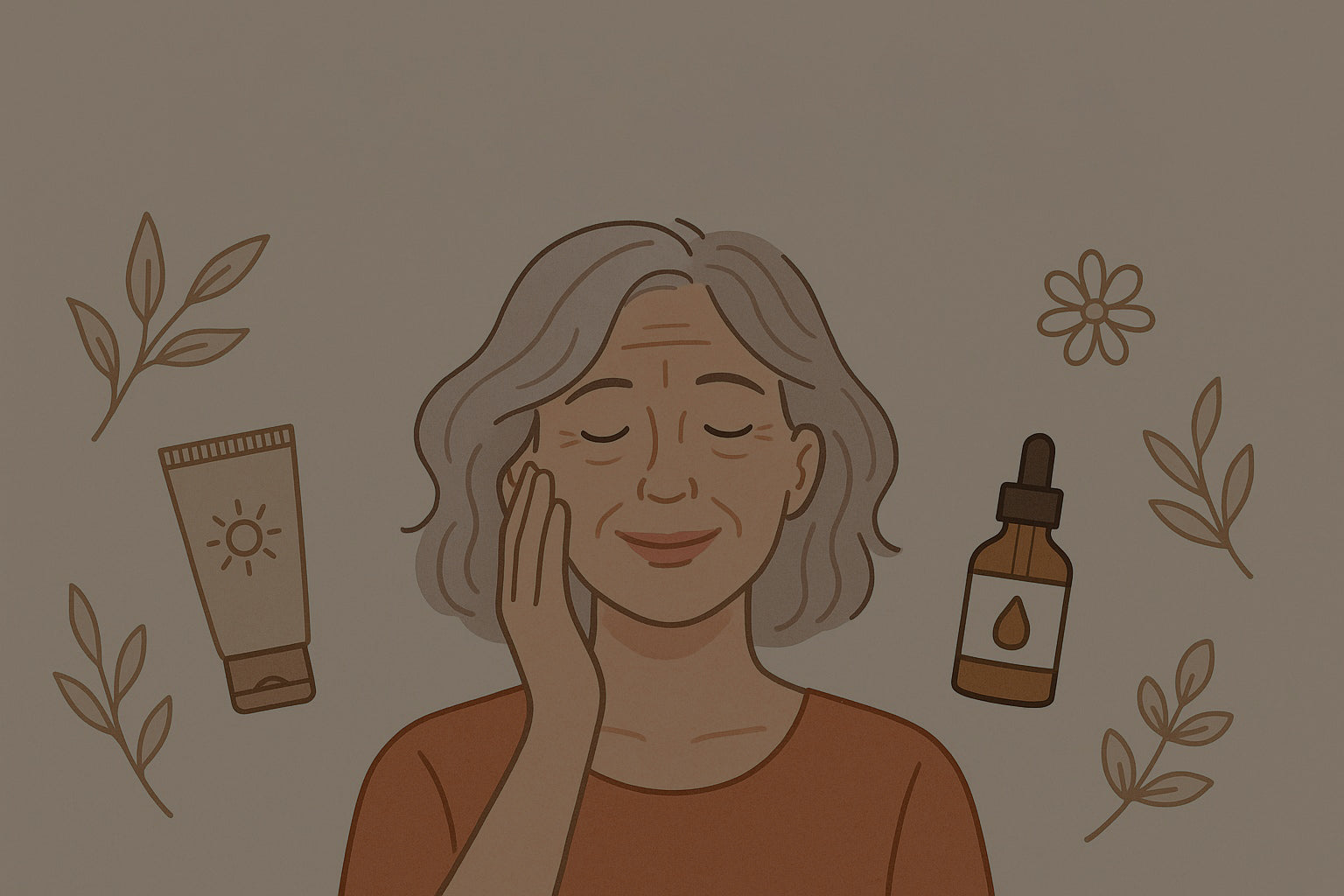Article: Menopause & Skincare: Embracing Change, Supporting Skin

Menopause & Skincare: Embracing Change, Supporting Skin
Introduction: A New Chapter, Not an Ending
Menopause is often misunderstood, especially in Western culture. Where some traditions view this stage of life as a powerful transition—a move into wisdom and self-possession—the U.S. still tends to frame it through the lens of loss and decline. But here's something I remind myself of often: aging is a privilege.
Menopause is not the end of vitality or beauty. It’s simply a new chapter, and with the right support, we can navigate it with grace, resilience, and radiant skin.
What’s Happening in the Body?
Women are born with all the eggs they'll ever have. As we move through life, we naturally lose these eggs, and eventually the ovaries begin to slow down the production of estrogen and progesterone. This marks the beginning of perimenopause, which can start as early as the late 30s or early 40s.
During this time, hormone fluctuations can bring about a range of changes—physically, emotionally, and mentally. Menopause is officially diagnosed when a woman has gone 12 consecutive months without a period, with the average age being 51. After that, we move into postmenopause, when hormone levels settle into a new, lower baseline.
How Hormonal Shifts Affect the Skin
The drop in estrogen has a direct impact on the skin’s structure and appearance. You may notice:
-
A loss of elasticity and firmness
-
Dryness and rough texture
-
Thinning and reduced volume
-
Slower healing and increased sensitivity
These changes are normal, but they can feel unfamiliar or frustrating. The good news is there are simple, effective ways to support your skin during this transition.
Skincare Ingredients That Make a Difference
Along with a thoughtful skincare routine that includes these key ingredients, gentle exfoliation can also play an important role. As cell turnover slows with age, exfoliating 1–2 times per week helps to reveal brighter skin, improve texture, and support the absorption of nourishing products.
Here are a few powerhouse ingredients to consider:
-
Hyaluronic Acid
Helps attract and hold moisture in the skin. For best results, apply it to damp skin and follow with a nourishing moisturizer to lock it in. -
Peptides
These amino acid chains signal the skin to produce more collagen and elastin, helping to restore some of the bounce and firmness that naturally diminishes over time. -
Antioxidants
Ingredients like vitamin C, green tea, and resveratrol protect the skin from environmental stressors and encourage healthy repair.
Lifestyle Habits for Skin Resilience
-
Eat the rainbow
Colorful fruits and vegetables provide antioxidants, vitamins, and minerals that protect and heal from the inside out. -
Include omega-3s
Found in flax, chia, walnuts, and fatty fish, omega-3s help maintain the skin’s lipid barrier and reduce inflammation. -
Prioritize sleep
Deep, consistent rest is one of the most overlooked beauty tools we have—it’s when the body regenerates and recalibrates. -
Herbal and nutritional support
Teas like chamomile, nettles, and red clover can soothe the nervous system and support hormonal balance. A B-complex vitamin can also ease fatigue and improve skin vitality.
Conclusion: Let This Be a Time of Care
Menopause isn't something to fight—it's something to support. The skin is simply reflecting deeper shifts happening in the body. With a thoughtful skincare approach and some supportive daily rituals, this chapter can become one of increased awareness, empowerment, and beauty on your own terms.
In addition to lifestyle and topical skincare, some women are exploring hormone replacement therapy (HRT) or topical products formulated with estrogen as a way to ease the transition. These can be helpful tools for some, but they aren’t for everyone. I encourage you to proceed with care: listen to your body, become informed, and seek out health care practitioners who are well-versed in women’s hormonal health and can help guide you with nuance and respect.
You deserve to feel at home in your skin—at every stage of life.
